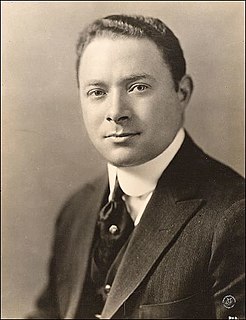A Quote by Roger Kimball
Intelligence, like fire, is a power that is neither good nor bad in itself but rather takes its virtue, its moral coloring, from its application.
Related Quotes
We are all prone to brood on the evil done us. That brooding becomes as a gnawing and destructive canker. Is there a virtue more in need of application in our time than the virtue of forgiving and forgetting? There are those who would look upon this as a sign of weakness. Is it? I submit that it takes neither strength nor intelligence to brood in anger over wrongs suffered, to go through life with a spirit of vindictiveness, to dissipate one’s abilities in planning retribution. There is no peace in the nursing of a grudge. There is no happiness in living for the day when you can ‘get even.
Liberty, according to my metaphysics, is an intellectual quality, an attribute that belongs not to fate nor chance. Neither possesses it, neither is capable of it. There is nothing moral or immoral in the idea of it. The definition of it is a self-determining power in an intellectual agent. It implies thought and choice and power; it can elect between objects, indifferent in point of morality, neither morally good nor morally evil.
The world is ruled by neither justice nor morality; crime is not punished nor virtue rewarded, one is forgotten as quickly as the other. The world is ruled by power and power is obtained with money. To work is senseless, because money cannot be obtained through work, but through exploitation of others. And if we cannot exploit as much as we wish, at least let us work as little as we can. Moral duty? We believe neither in the morality of man nor in the morality of systems. [p. 168]
If we are to become the masters of science, not its slaves, we must learn to use its immense power to good purpose. The machine itself has neither mind nor soul nor moral sense. Only man has been endowed with these godlike attributes. Every age has its destined duty. Ours is to nurture an awareness of those divine attributes and a sense of responsibility in giving them expression.
Eyes are bold as lions,--roving, running, leaping, here and there, far and near. They speak all languages. They wait for no introduction; they are no Englishmen; ask no leave of age or rank; they respect neither property nor riches, neither learning nor power, nor virtue, nor sex, but intrude, and come again, and go through and through you in a moment of time. What inundation of life and thought is discharged from one soul into another through them!




































